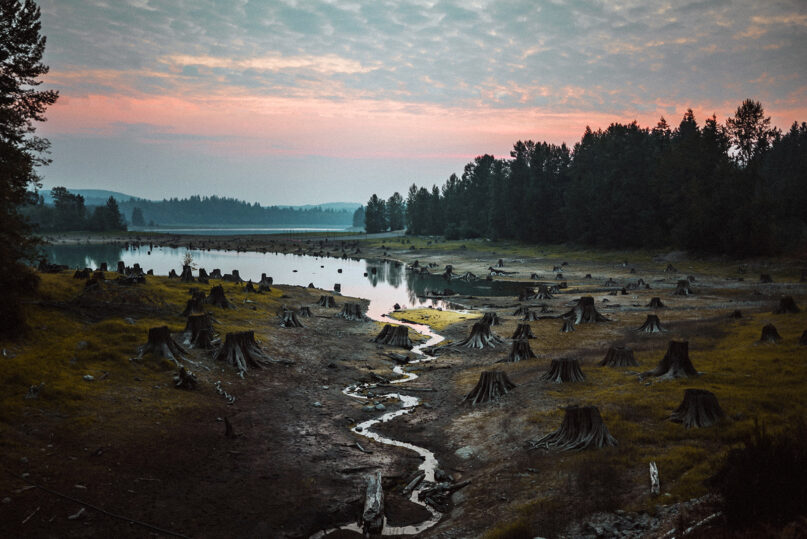(RNS) — As the Biden administration gears up to combat climate change, I’d like to see the leaders of my religious community at the forefront of those rallying to the cause.
It’s not as if the Jewish rank and file are unconcerned. Back in 2014, a PRRI survey found that fully 78% of us consider climate change either “a crisis” or “a major problem” — the highest proportion of any religious group in America. And there’s no shortage of Jews involved in large secular environmental organizations, to say nothing of a number of small Jewish ones.
But the leadership of the communal umbrella organizations has pretty much been missing in action.
How come?
The question was posed at the opening panel of the Big Bold Jewish Climate Fest, an online agglomeration of discussions, performances, presentations, rituals and workshops that took place at the end of January around Tu B’shvat, the festival known as the “New Year of the Trees” that has become the annual focus of Jewish environmentalism.
“Why isn’t climate change high on the communal agenda?” asked organizer Lisa Colton.
Because it hasn’t been perceived as central to the health and safety of the Jewish community, said Eric Fingerhut, president and CEO of the Jewish Federations of North America.
Because there are no obvious bad and good guys, and no clearly achievable solutions, suggested Nigel Savage, founder, president and CEO of the Jewish sustainability organization Hazon.
“I think it’s taken a while for folks to realize that yes, this is about trees and plants and animals and ecosystems, and it’s also about people,” said Rabbi Jennie Rosenn, founder and CEO of the new Jewish climate advocacy organization Dayenu. “And it’s also a social justice issue of who will bear the brunt of economic collapse. And whether we address this with equity and justice at the center. This is actually about the future of humanity.”
In fact, environmentalism was put on the Jewish communal agenda three decades ago, thanks in no small measure to Rabbi David Saperstein, then director of Reform Judaism’s Religious Action Center in Washington, and Jerome Chanes, then national affairs director of the National Jewish Community Relations Advisory Council.
Now renamed the Jewish Council for Public Affairs, NJCRAC is the national agency that at least nominally coordinates the policy agenda of the Jewish community at large, including the 125 community relations councils associated with local Jewish federations.
In 1993, Saperstein and Chanes played key roles in establishing the Coalition on the Environment and Jewish Life as well as the interfaith National Religious Partnership for the Environment. COEJL was embedded in NJCRAC.
In those days, the Jewish community was less narrowly focused on Israel and its own demographic continuity, and less riven by partisan political disagreements. No one objected to joining the environmentalist bandwagon.
But there was a problem. Recalled Chanes, “The environment didn’t really fit naturally in the model.”
As the very name “community relations” indicates, the Jewish policy agenda has always been conceived in terms of relations with the outside community — or perhaps more accurately, with various communities. Alongside meeting with elected officials, local community relations committees devote much of their time to forging relationships and alliances with groups of gentiles — Black, Christian, Muslim, etc.
In other words, Jewish policy engagement is, in environmentalist lingo, anthropocentric: Protecting the natural world doesn’t fit the model.
But as Rosenn made clear, engaging with the poor and marginalized communities who are most victimized by environmental degradation and climate change does fit the model.
It is instructive that, in his powerful encyclical “Laudato Si’,” Pope Francis makes concern for human suffering from climate change of a piece with his concern for the natural world. Mainline Protestant denominations like the United Church of Christ likewise make environmental justice central to their environmental advocacy.
So how does climate change become, as the title of the Climate Fest panel put it, “a central moral issue of the Jewish community”?
“Don’t write off the organized, establishment Jewish community,” Fingerhut said. “Rather, view it as an opportunity.”
From time to time, the Jewish establishment has embraced a cause whose advocates it initially ignored or dismissed. A case in point is the push for a more democratic Israel, urged in the early 1980s by the gadfly New Israel Fund, which eventually was given a place at the table.
The lesson is that peripheral groups can only take a cause so far.
“A lot of this is about leadership,” said panelist Ruth Messinger, former president and CEO of Jewish World Service and the doyenne of Jewish activism in America. “People do listen to their leaders.”






